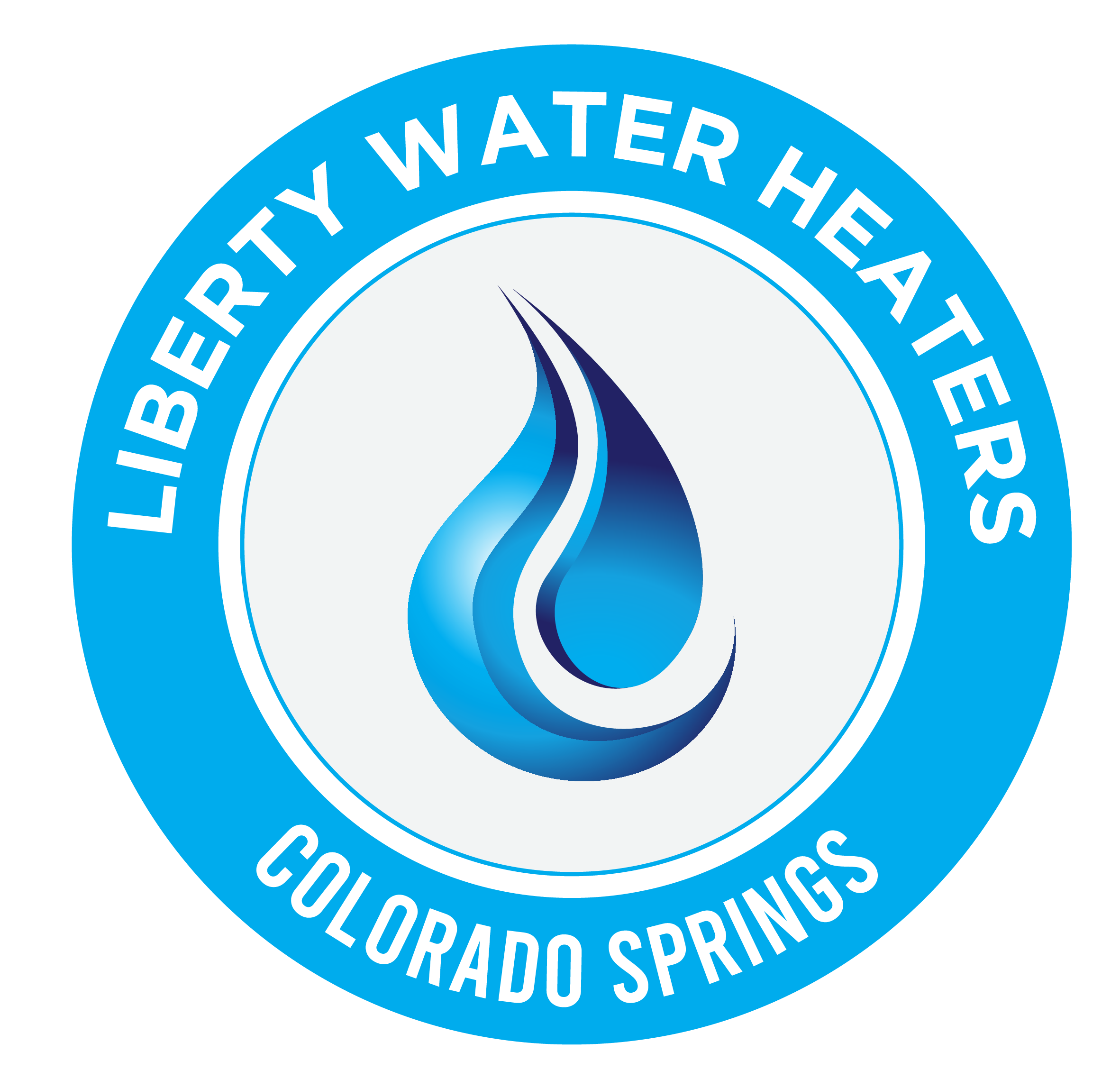Conventional Tank Water Heater Repair & Installation in Colorado Springs

Request Your Estimate

Request Your Estimate
Conventional Tank Water Heater Repair & Installation Colorado Springs
Types of Tank Water Heaters
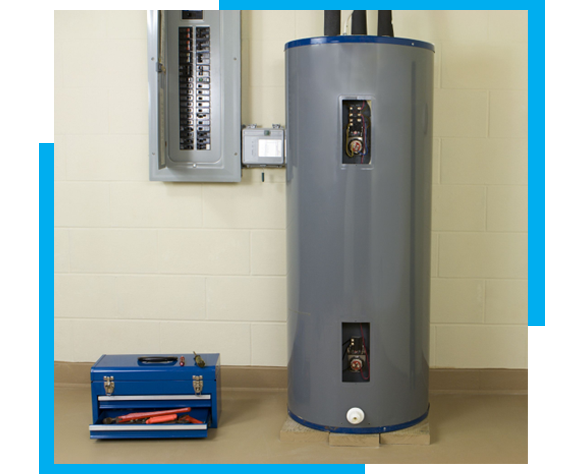
Electric tank water heaters
Electric tank water heaters cost less than gas water heaters upon purchase but are more expensive to run because of the price of electricity. These water heaters use heating elements inside the tank that are powered by electricity to heat the water.
Cold water enters the tank through a dip tube, which directs it to the bottom of the tank where it’s heated by the heating elements.
As the water heats up, it rises to the top of the tank, and a thermostat monitors the water temperature. When the temperature drops below the set point, the heating elements turn on to reheat the water.

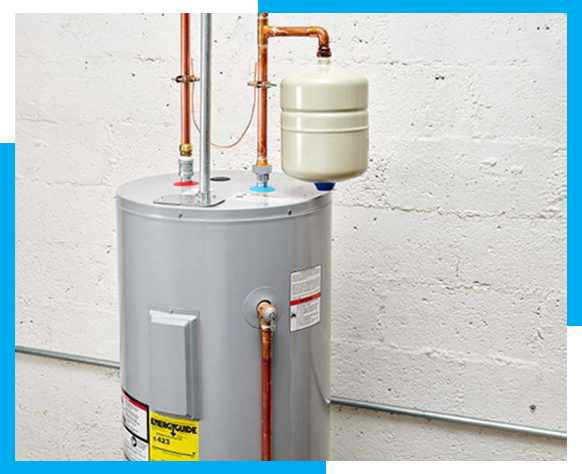
Natural gas or propane tank water heaters
While electric water heaters tend to have a higher initial purchase cost, they generally prove to be more cost-effective in the long run, typically requiring only about half the operating expenses compared to their electric counterparts. This cost disparity arises from the variation in energy source pricing. Gas water heaters employ a gas burner positioned at the tank’s base to heat the water, and the resulting combustion gases are expelled to the home’s exterior through a flue or chimney.
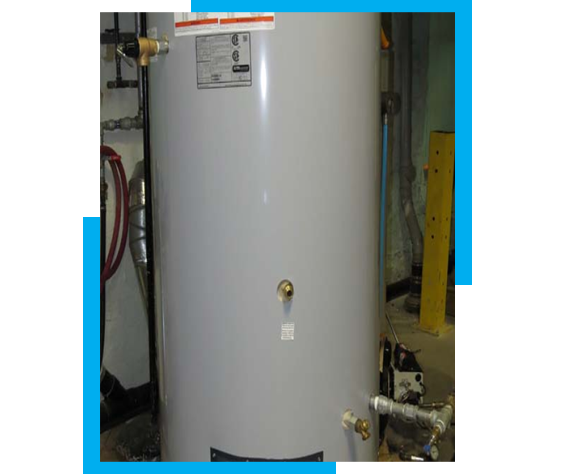
Oil-fired tank water heaters
Oil-fired water heaters operate in a manner akin to conventional gas tank water heaters, with the key distinction being their utilization of oil as the primary fuel source. These units incorporate an oil burner situated at the tank’s base, which ignites the oil to generate heat for water heating purposes. It is worth noting that oil-fired water heaters are relatively less prevalent and are typically encountered in regions where access to natural gas or propane may be limited.
When hot water is needed, a thermostat detects the drop in temperature and signals the gas valve to open. Gas is then released and ignited by a pilot light or electronic ignition system to heat the water. The heated water rises to the top of the tank, and the thermostat monitors and controls the water temperature.
In summary, conventional tank water heaters work by heating and storing water in an insulated tank until it’s needed. They can use various energy sources, including electricity, gas, oil, or even solar energy, and employ different heating methods to maintain a consistent supply of hot water. The choice of the type of water heater depends on factors such as energy availability, cost, and energy efficiency.

In summary, conventional tank water heaters work by heating and storing water in an insulated tank until it’s needed. They can use various energy sources, including electricity, gas, oil, or even solar energy, and employ different heating methods to maintain a consistent supply of hot water. The choice of the type of water heater depends on factors such as cost, energy availability, and energy efficiency.
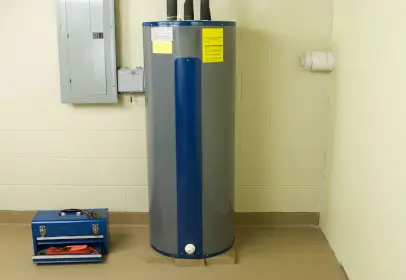
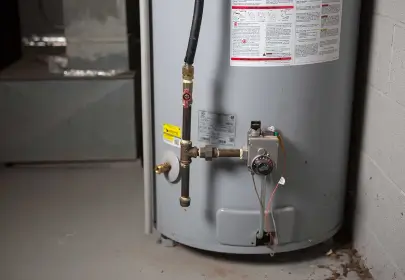
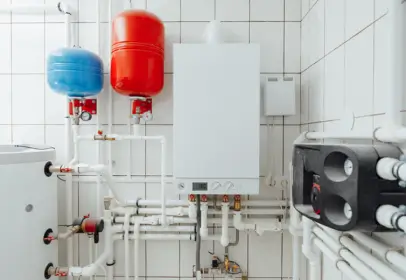
Cost of Conventional Tank Water Heaters
Benefits of Conventional Tank Water Heaters
Maintenance is relatively straightforward, with fewer components to worry about compared to tankless or heat pump systems. This simplicity often translates to lower long-term maintenance costs. Lastly, conventional tank water heaters have a longer lifespan, typically lasting 10-15 years or more, making them a durable and cost-effective choice for homeowners looking for a reliable and budget-friendly water heating solution.

